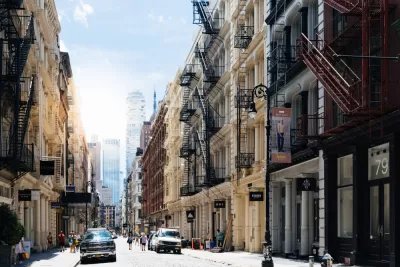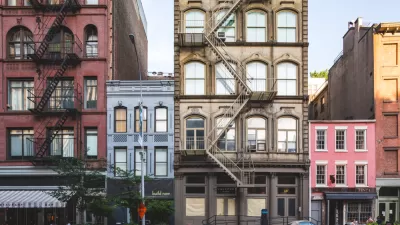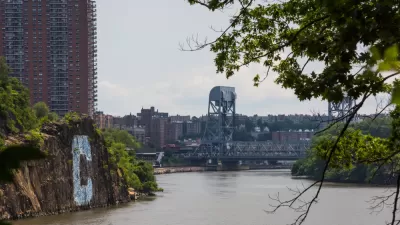Mayor Bill de Blasio is crossing the finish line of his time in office at the same time as one of the most controversial rezoning processes of his administration.

Sam Raskin reports on the latest back and forth between neighborhood advocates, local lawmakers, and the Mayor's Office surrounding a controversial rezoning process underway in the Manhattan neighborhood of SoHo, underway since 2018.
Of the numerous rezonings undertaken during the de Blasio administration, the Envision SoHo/NoHo process offers one of the first chances to add new residential zoning and affordable housing opportunities in a relatively affluent corner of the city. Much of the recent controversy centers on the lack of affordable housing capacity built into the current version of the plan, which would add 3,000 new housing units, with 900 below-market-rate apartments included in that total.
According to article, groups like the Cooper Square Committee and NoHo Bowery Stakeholders are pressing the city to add more affordable housing, and say the process has been marred by a "'troubling' lack of regard for input from neighborhood nonprofit groups," reports Raskin.
Moses Gates, vice president for housing and neighborhood planning at the Regional Plan Association, is quoted in the article discussing a, perhaps, surprising culprit in the plan's lack of affordable housing opportunities: an overabundance of parcels zoned for commercial development.
"We are all looking for significant affordable housing to be built, and I think the biggest concern is that the allowed commercial densities are too high, and that a rezoning intended for mixed-income housing will end up as a rezoning for office buildings," says Gates, as quoted in the article.
FULL STORY: De Blasio’s Soho rezoning plan doesn’t address the ‘real issues,’ pols say

Trump Administration Could Effectively End Housing Voucher Program
Federal officials are eyeing major cuts to the Section 8 program that helps millions of low-income households pay rent.

Planetizen Federal Action Tracker
A weekly monitor of how Trump’s orders and actions are impacting planners and planning in America.

Ken Jennings Launches Transit Web Series
The Jeopardy champ wants you to ride public transit.

Rebuilding Smarter: How LA County Is Guiding Fire-Ravaged Communities Toward Resilience
Los Angeles County is leading a coordinated effort to help fire-impacted communities rebuild with resilience by providing recovery resources, promoting fire-wise design, and aligning reconstruction with broader sustainability and climate goals.

When Borders Blur: Regional Collaboration in Action
As regional challenges outgrow city boundaries, “When Borders Blur” explores how cross-jurisdictional collaboration can drive smarter, more resilient urban planning, sharing real-world lessons from thriving partnerships across North America.

Philadelphia Is Expanding its Network of Roundabouts
Roundabouts are widely shown to decrease traffic speed, reduce congestion, and improve efficiency.
Urban Design for Planners 1: Software Tools
This six-course series explores essential urban design concepts using open source software and equips planners with the tools they need to participate fully in the urban design process.
Planning for Universal Design
Learn the tools for implementing Universal Design in planning regulations.
Ada County Highway District
Clanton & Associates, Inc.
Jessamine County Fiscal Court
Institute for Housing and Urban Development Studies (IHS)
City of Grandview
Harvard GSD Executive Education
Toledo-Lucas County Plan Commissions
Salt Lake City
NYU Wagner Graduate School of Public Service





























